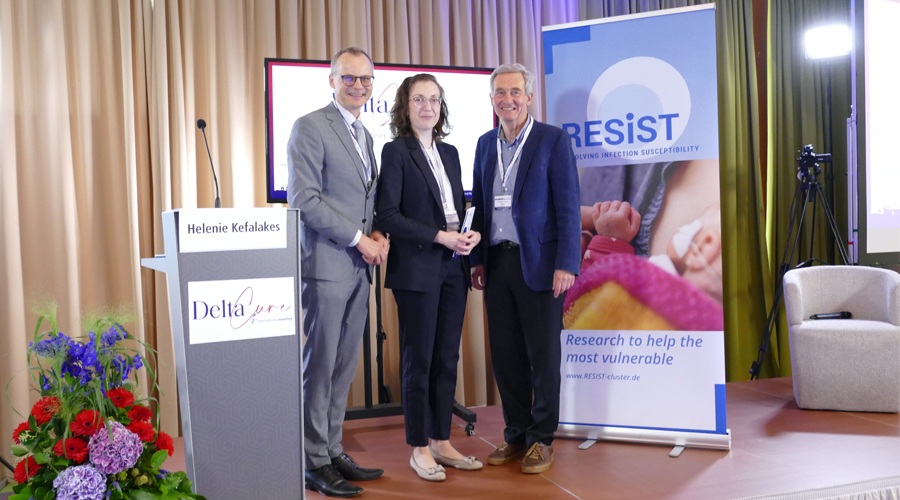This year’s RESIST Satellite Symposium took place on October 5 at the Courtyard Hotel am Maschsee – as part of the international conference “Delta-Cure”. This conference on hepatitis D virus infections was organized by the MHH Department of Gastroenterology, Hepatology, Infectiology and Endocrinology under the direction of Prof. Wedemeyer.
This year, the satellite symposium was populated not only by researchers from the RESIST Cluster of Excellence but also from the D-Solve consortium. RESIST speaker Prof. Schulz and RESIST researcher Dr. Kefalakes welcomed the numerous guests and also guided them through the program, which consisted of seven lectures and two short presentations.
Prof. Urban, University of Heidelberg, kicked off the program with a presentation of the latest findings in the field of hepatitis D virology. This was followed by Prof. Björkström from the Swedish Karolinska Institutet with a presentation on the increase in antiviral efficacy of natural killer cells. Prof. Cornberg, MHH, then answered the question of how anti-hepatitis B virus immunity can achieve elimination of hepatitis D virus.
Prof. Kalinke, TWINCORE, spoke on the possibility that B cells can predict the future, and Dr. Joachim Lupberger, INSERM, France, reported on epigenetic approaches to inhibit hepatocellular carcinoma induced by hepatitis D virus.
Finally, Dr. Lisa Sandmann, MHH, gave a presentation on the multi-omics approach to deciphering hepatitis D virus control, and Dr. Carpentier, TWINCORE, presented his topic, which revolves around the analysis of hepatitis D virus-infected stem cell-derived hepatocytes. “I am pleased that the RESIST satellite symposium could be part of the Delta-Cure meeting, where the worldwide community around hepatitis D treatment and research met. Hannover plays a crucial role in terms of related clinical trials, and research on this topic is also developing here with great potential – Including RESIST,” said Prof. Schulz. “The satellite symposium was a great success! It once again demonstrated the importance of translational research approaches to gain new insights for the clinic,” said Dr. Kefalakes.
The photo shows (from left): Prof. Wedemeyer. Dr. Kefalakes and Prof. Schulz.

